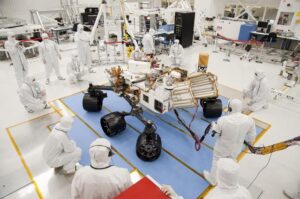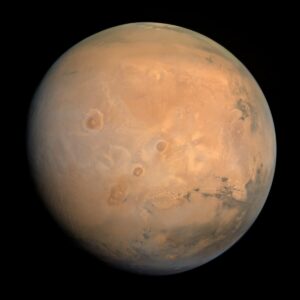How come we still don’t know whether or not aliens have visited Earth?
Maybe because even if they’re out there somewhere, they can’t leave their home worlds — with or without mind-blowing technology.
That’s what one researcher has suggested in a new article published in the Journal of the British Interplanetary Society. Elio Quiroga, a professor at the Universidad del Atlántico Medio in Spain, proposes that two peculiar sets of conditions could be trapping aliens on their home planets.
Quiroga introduces the “Exoplanet Escape Factor and the Fishbowl Worlds” as ideas that could keep us apart from certain interstellar neighbors forever.
Fishbowls and g-forces
His theory concerns the Drake Equation, a complex experimental equation scientists use to interpret the existence of extraterrestrial life. Of course, we can only be sure of extraterrestrial intelligence (ETI) if we can communicate with it. Two factors that control whether that’s possible:
- The ability of a life form to escape gravity on its home planet, and
- Its ability to telecommunicate via radio waves.
In order for us to see or hear ET, he needs to be able to either ride a bike around the cosmos or “phone home” — or both. The principles of each of Quiroga’s theories are similarly simple, even though the math is complex.
Many exoplanets astronomers consider “super-earths” promising locations for ETI. These planets can vary widely in most ways but must be larger than Earth and smaller than Neptune. They’re also common in the Milky Way, according to NASA. Some are 10 times more massive than Earth.

NASA’s Kepler mission started the hunt for exoplanets in 2009 and located numerous super-earths along the way. Image: NASA, Ames/W. Stenzel
Trouble is, the bigger the object, the higher the gravity.
Quiroga’s Exoplanet Escape Factor (Fex) and Exoplanet Escape Velocity (Vex) to demonstrate that many super-earths could be physically impossible to escape.
At certain Fex values, life forms “would not be able to leave the planet using any conceivable amount of fuel,” Quiroga told ScienceAlert. “Nor would a viable rocket structure withstand the pressures involved in the process, at least with the materials we know (as far as we know, the same periodic table of elements and the same combinations of them govern the entire Universe).”
Quiroga concludes: “An intelligent species on these planets would never be able to travel into space due to sheer physical impossibility.”
Fishbowl Worlds, he argued, could create an altogether different obstacle to space travel. Sound can travel a long way through liquid without losing much fidelity. On a Hycean planet, or one totally covered by liquid oceans, long-distance communication might not require much technology.
“Telecommunications technology might never emerge on such a world, even though it could be home to a fully developed civilization,” Quiroga speculates. “Such a civilization would not be ‘communicative’ and would not be contemplated in the Drake equation.”
Is the truth out there? If so, we may have to go find it ourselves.






